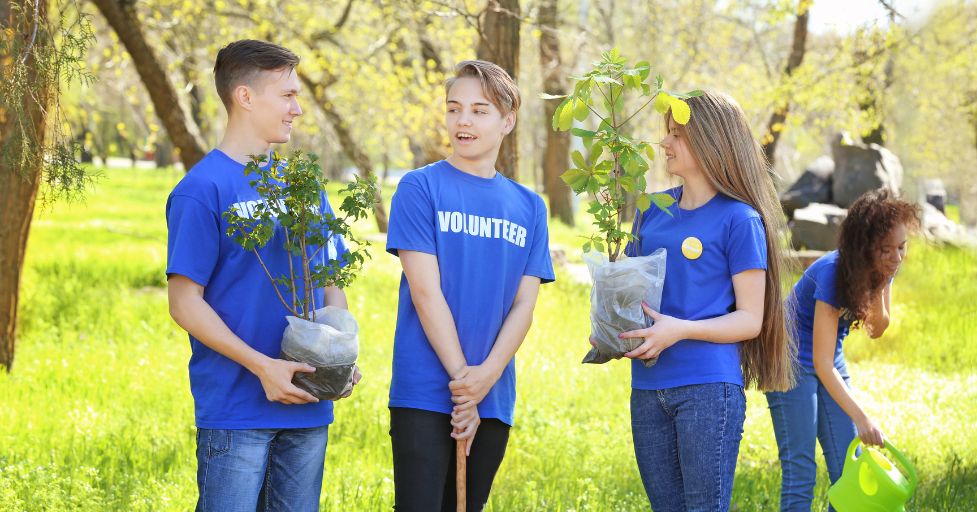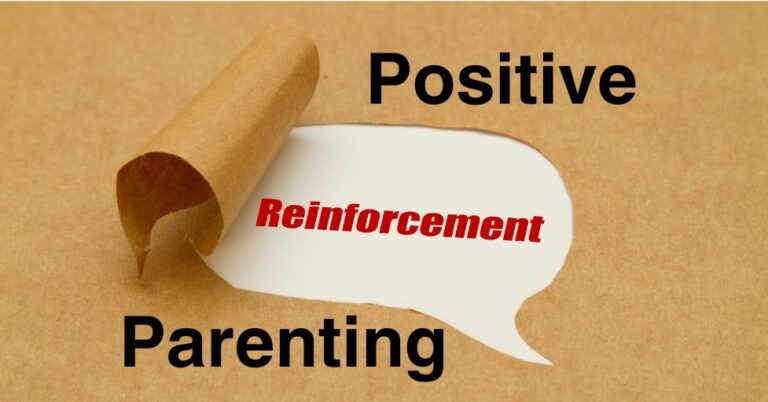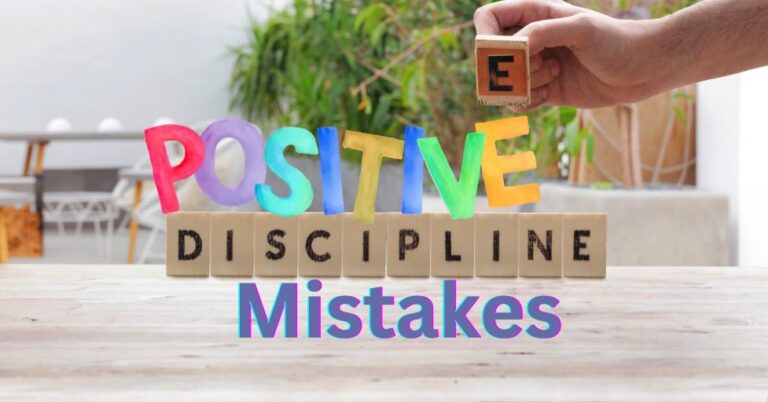Developing Social Skills in Teens: Essential Guide for 2025
Disclosure: This post may contain affiliate links, meaning I may get a small commission if you decide to make a purchase through my links, at no cost to you.

Developing Social Skills in Teens
Hey there! Did you know that 7 out of 10 teenagers totally freak out about talking to other people at least once a week? No joke! I’ve been watching teens navigate the social jungle for years, and let me tell ya—it’s ROUGH out there!
Between trying to figure out who you are and dealing with both face-to-face AND online drama, it’s like playing a video game on extreme difficulty with no tutorial. But here’s the awesome news: nobody’s born knowing how to make friends or handle awkward situations!
These are skills your teens can actually learn, just like riding a bike or beating that impossible level on your favorite game. So let’s dive into how to level up your teens social skills and crush this whole “being a teenager” thing!
Understanding the Importance of Social Skills in Adolescent Development

Listen, I’ve been teaching for many years now, and I can’t tell you how many parents come to me worried about their teen’s social life. “My child won’t talk to anyone!” or “They spend all day gaming and have no real friends!” I get it—I totally do.
When my own son went through an awkward phase, we were worried sick about friendships. But here’s the thing—developing strong social skills during the teen years isn’t just about having a busy social calendar; it’s literally rewiring their brains for future success.
Neurological Development for Developing Better Social Skills

The teen brain is basically under major construction during adolescence. All that neurological development makes these years super critical for learning social skills that’ll stick around for life.
I’ve seen it countless times—teens who develop strong social competencies usually do better academically too. It’s not rocket science when you think about it; being able to ask questions, collaborate on projects, and communicate clearly with teachers directly impacts learning outcomes.
What keeps me up at night is seeing kids who fly under the radar with their social struggles. Not every socially challenged teen is obviously isolated or acting out.
Sometimes it’s the quiet student who has “friends” but can’t resolve conflicts, or the popular teen who manipulates rather than communicates honestly. These subtle deficits can seriously mess with their mental health and self-esteem over time.
Consequences of Lacking Social Skills

The real-world consequences of underdeveloped social skills hit hard after high school. I’ve bumped into former students who bombed job interviews because they didn’t know how to talk about themselves effectively—something they should’ve learned years earlier.
Understand more about natural consequences here—> Natural Consequences
If you’re wondering whether your teen’s social awkwardness is typical or something more concerning, pay attention to progress, not perfection.
Most teens have cringey social moments—heaven knows I still remember embarrassing moments from my own teenage years! The bottom line?
Social skills might seem less important than academics, but they’re absolutely crucial for long-term success in relationships, higher education, and careers.
Core Social Skills Every Teen Needs to Master in 2025

So what social skills do teens actually need these days? Honestly, the fundamentals haven’t changed much since we were teenagers (though that feels like ancient history to our kids!).
Communication skills are non-negotiable—and I’m not just talking about being chatty. I’m talking about real, meaningful communication that connects people.
Teen Social Skills Active Listening
Active listening is probably the skill I work on most with students. I can’t count how many classroom conflicts started because someone was half-listening while scrolling their phone.
I make students practice repeating back what someone said before responding, and it’s amazing how quickly arguments dissolve when people actually hear each other.
It was a game-changer for my classroom management too—learned that trick after a particularly challenging year when I was ready to quit!
Social Skills for Teens – Clear Expression
Clear expression is another biggie that trips up so many teens. Many students come to school upset about friend drama, but when asked what happened, they say “I don’t know, it’s just vibes.”
We work on identifying and naming feelings, then expressing them clearly. “I felt left out when you didn’t save me a seat” works way better than vague complaints or passive-aggressive comments.
Building Social Skills – Emotional Intelligence
Emotional intelligence is honestly the foundation for everything else. If your teen can’t identify their own emotions, how the heck are they supposed to manage them or recognize feelings in others?
I start the year with emotion vocabulary building—moving beyond just “mad,” “sad,” and “happy” to more nuanced feelings like frustrated, disappointed, overwhelmed, or anxious.
How to Develop Social Skills Through Conflict Resolution

Conflict resolution is where the rubber meets the road. Most teens default to either avoiding conflict completely or going nuclear at the slightest disagreement. Check out these games that teach conflict resolution.
Neither works! Teaching a simple formula helps: name the problem without blame, express your feelings, state what you need, and suggest a solution.
How to Improve Social Skills Through Empathy
Empathy development and boundary-setting are equally crucial in today’s world. Teens who can genuinely consider other perspectives have a superpower in our increasingly polarized society.
Meanwhile, learning to set healthy boundaries early saves years of people-pleasing later in life. These core competencies equip teenagers for whatever social challenges come their way.
Digital Social Skills: Navigating Online Relationships Effectively

OK, so here’s where things get wild compared to when we were growing up. Digital social skills? Wasn’t even a thing back in school!
Now your teen has this whole parallel universe of social interaction to navigate. And let me tell you, as someone who sees the fallout from digital drama every day in my classroom, this stuff matters for your child.
How to Improve Social Communications in Social Media
Social media etiquette is completely different from face-to-face interaction, and many teens (and adults, let’s be real) struggle to make the adjustment.
I learned this the hard way after posting a joking comment online that completely mortified a younger family member. What I thought was funny came across as sarcastic and mean without my facial expression and tone of voice.
Text-based communication loses important context cues, and teens need extra guidance about being clear with their intentions online.
Check out SMART online safety for kids
Balancing Online and Offline Social Skills
The balance between online and offline socializing is something parents should monitor. Some teens become kings or queens of their gaming communities—respected, popular, always included—but struggle to make real-world connections.
Working with your teenager to identify which communication strengths from digital spaces can transfer to in-person interactions often helps bridge this gap.
Social Skills to Combat Cyberbullying

Cyberbullying is the nightmare that keeps evolving. Just when schools figure out how to address one form, some new app or platform creates new opportunities for cruelty.
The strategies you teach your teen need to evolve too. Saving evidence, blocking the person, telling a trusted adult, and understanding that responding often escalates the situation are all important skills.
It’s also crucial your child understands that being a silent bystander online is just as harmful as in person.
The Problem With Oversharing or Inappropriate Posting On Social Media
One of the trickiest things for teenagers is balancing authentic self-expression online while maintaining appropriate boundaries.
Oversharing is an epidemic! When teens overshare on social media or forget to set boundaries, it’s like handing out their diary to the whole school—awkward and risky.
It can hurt their reputation, attract the wrong kind of attention, or come back to haunt them when they’re applying for jobs.
Digital footprint activities where your teen imagines their grandmother, future college admissions officer, and potential boss all reading their posts usually helps them think twice about what they post.
Social Rules with Online and Offline Communication

What really helps teens develop these digital social skills is having explicit conversations with them about the differences between online and offline communication.
Many parents just hand kids devices without discussing the new social rules that come with them. Your teen is basically learning to be bicultural—fluent in both digital and physical social worlds—and that’s a complex skill that deserves your intentional support.
Common Social Challenges Teens Face Today
Let’s get real about the social battlefield teens navigate every day. Peer pressure hasn’t gone anywhere since we were kids—it’s just morphed into new forms.
I’ve seen plenty of sweet kids start changing their appearance and behavior just to fit in with a certain crowd.
When I share my own embarrassing stories about trying to impress people who never ended up being real friends, it helps teens feel less alone in their struggles.
Sharpening Social Skills with an Exit Strategy (AKA the Secret Code Word)
Forget the old “just say no” lines from cringey school videos—teens need real tools to handle peer pressure. One of the best? A smooth exit plan and a backup buddy (a.k.a. you, the parent).
Teach your teen to text you a secret code word—like “pineapple” or “homework meltdown”—when they’re stuck in a situation that feels off. You swoop in with a call or text that gives them an easy out, no questions asked, no awkward explanations needed.
For example: if your teen texts “pineapple” from a party, you call and say, “I need you home to help with your little brother!” Instant escape, no drama, and no social fallout.
Check out A Guide on Social Media Impact on Teen Relationships
Navigating Cliques and Finding Real Friends (Without the Lunchroom Drama)

Middle and high school friendships can be a rollercoaster—especially when it comes to cliques. The lunchroom? Basically a battlefield of “who’s sitting where” anxiety. I always remind parents: it’s not about how many friends your teen has, it’s about having the right ones.
Two loyal friends who love your teen for who they are beat twenty “friends” who’d ditch them faster than a Snapchat streak if their social status took a dip. Teach them to spot the kind friends who cheer them on—not just the ones who care about who’s trending this week.
Taming the Teenage Dating Drama (Enter: The Relationship Reality Check)
Let’s be real—teen dating drama can feel like a full-time job for their brains (and sometimes yours). One way to ease the emotional rollercoaster? Teach teens to do a relationship reality check. Remind them that dating in high school isn’t about finding their soulmate—it’s about figuring themselves out.
Every crush, awkward breakup, and “OMG he left me on read” moment is actually a lesson in what they like, how they want to be treated, and how to communicate like a grown-up someday.
When they see romance as practice, not pressure, it’s way easier to bounce back and keep their confidence intact.
Crushing Social Anxiety One Baby Step at a Time
Social anxiety is the invisible weight a lot of teens are carrying these days. The idea of speaking up, joining a group, or even making eye contact can feel like climbing Mount Everest in flip-flops.
But here’s the secret: baby steps. Help your teen tackle one small social challenge at a time—like saying “hi” to a classmate or asking a question in class.
Slowly, those little wins stack up. Think of it like leveling up in a game: each small move builds confidence until those big, scary situations don’t seem so impossible anymore.
Culture, Communication & the Unspoken Struggles

Social skills aren’t one-size-fits-all—especially when culture comes into play. What’s normal in one family or culture might be totally confusing in another. A teen who avoids eye contact may be seen as rude, when really, they’re being respectful in their culture.
That’s why it’s so important to talk about these differences. Opening up conversations about how culture shapes communication helps everyone understand each other better—and builds communities where no one feels like the odd one out for just being themselves.
Now, let’s talk about the real social challenges—the ones teens usually keep bottled up. Like the pit-in-your-stomach feeling of walking into a crowded room alone.
Or sitting at lunch and wondering if anyone will invite you over. These quiet moments of exclusion or anxiety can feel crushing, but they’re more common than most teens realize.
When we create safe spaces to talk about these hidden struggles, teens learn they’re not alone—and that’s often the first step to healing and growing.
Practical Activities to Strengthen Teens’ Social Skills

Alright, let’s get down to the nitty-gritty—actual activities that help your teen strengthen their social skills.
Role-playing exercises might sound cheesy, but they really work if you make them relevant to real situations your teenager faces—like how to handle seeing someone sitting alone at lunch, or ways to join a conversation already in progress without awkwardness.
Nail the Interview Before It Counts
Mock job interviews are pure gold for teens. Just practicing things like steady eye contact (not the creepy stare), answering questions thoughtfully, and keeping nervous fidgeting in check can work wonders for their confidence.
And bonus—these skills don’t just help with job interviews. They also carry over to school presentations, college admissions chats, and future work life. Basically, it’s dress rehearsal for real-world success.
Escape the Awkward: Group Challenges that Work
Want to help a socially anxious teen step out of their shell without making it weird? Try an escape room challenge. Whether it’s a fancy one downtown or a DIY version at home with hidden clues and combo locks, these games require teamwork, communication, and problem-solving.
Even the shyest kid can shine when they’re solving puzzles with a group that needs their brain to win.
Structure Is the Secret Sauce
Group activities can turn into social chaos if there’s no plan. But give teens clear roles, set communication rules, and take breaks to reflect on how everyone’s working together—and boom!
You’ve got a productive, confidence-boosting experience. Even teens who normally sit back start showing up when they know exactly what’s expected of them.
Conversation Starters for the Tongue-Tied
Some teens freeze up in conversations like a deer in headlights. That’s where easy games like “Rose and Thorn” (share one good thing and one not-so-great thing from your day) or “Would You Rather?” come to the rescue. Check out these conversation starter cards.
These simple formats give teens a clear way to participate without the stress of figuring out what to say. It’s like handing them a social cheat code.
Volunteer to Break Out of the Bubble

Volunteering isn’t just about helping others—it’s a secret weapon for teens to build empathy and people skills.
Community service projects introduce them to folks outside their usual crowd, giving them a chance to connect, contribute, and sometimes even discover talents they didn’t know they had. It’s real-world social learning—no worksheets required.
Family Fun That Builds Real Skills
Family game night isn’t just for laughs (though that’s a big win too). Games like charades build non-verbal communication, strategy games sharpen thinking and turn-taking, and team games boost cooperation.
All of these translate directly to better peer interactions in developing social skills in teens. Plus, practicing with people who love them makes it feel safe to mess up and learn.
Keep It Real, Keep It Consistent – Developing Social Skills in Teens
The best social skill boosters aren’t cheesy or forced—they’re small, meaningful habits practiced regularly. Like teaching your teen to pause and count to three before jumping into a conversation.
It sounds simple, but these kinds of mini-skills add up over time and create big changes in how your teen relates to others.
How Parents and Educators Can Support Social Skill Development

Let’s be honest—we adults can’t teach skills we don’t model ourselves! I learned this lesson after catching myself displaying the exact communication habits I was trying to discourage in my students.
Your teen is watching how you handle conflicts, whether you listen actively during conversations, and how you maintain your own friendships. They learn way more from what you do than what you say.
Helpful or Helicopter? Don’t Be That Parent
We get it—you love your kid and want to rescue them from every awkward lunch table moment and friendship fallout. But jumping in to fix everything or brushing it off with a “just ignore it” doesn’t help.
The magic is in being their coach, not their crisis manager. Think consultant vibes: you’re on the sidelines, cheering them on and offering strategies—not grabbing the ball and running the play yourself. It’s hard not to want to fix everything. I know – I’ve been there.
Set the Scene Without the Pressure
Teens don’t thrive socially when they’re shoved into situations with a spotlight on “go make friends.” But toss them into something they already love—like robotics club, theater, or Dungeons & Dragons—and bam, they’ve got instant conversation starters.
Passion + people = organic social growth without the awkward “now talk to someone” pep talks.
Feedback: Sandwich It or Skip It
Telling your teen they were too intense during that group project? Timing and delivery are everything.
Try the “feedback sandwich”: one positive, one gentle tweak, and another positive. Oh, and serve it after emotions cool down—not right after the meltdown in the minivan. Also: keep it private. No one likes a public performance review.
Support or Silence? Let Them Choose
Teens don’t always want a lecture—they want a listener. Try asking, “Do you want help or just someone to hear you out?”
It gives them control while reminding them you’re always available. Even when they roll their eyes at advice, they often still want someone to vent to (and secretly consider your wisdom later).
Ditch “Fine” – Ask Better Questions
If “How was your day?” gets you nothing but a grunt, switch it up. Try, “Hear any good drama today?” That works great with my youngest daughter or “Who said something interesting?”
Fun or offbeat questions tend to crack open the teen shell. Pro tip: Ask during side-by-side activities like driving or cooking. Teens open up more when they don’t feel watched.
Progress Is Not a Straight Line (Sorry!)
Helping your teen develop social skills is like training for a marathon—with random detours, pit stops, and days where you both just want to quit.
But celebrate the little wins: they made eye contact, joined a group, or asked someone a question. Those micro-moments add up. Patience is your superpower here.
When to Seek Professional Support for Social Skills Development

When Is Awkward Too Awkward?
Every teen goes through weird, cringey phases—it’s part of the job description. But knowing when it’s normal awkward and when it’s “let’s get help” awkward?
That’s the parenting tightrope walk. I’ve panicked over harmless stuff and shrugged off real red flags. You’re not alone—it’s tricky for all of us.
Red Flags Waving
Here’s your “don’t ignore this” list:
- Your teen suddenly drops all social activity like it’s hot.
- They avoid group stuff they used to enjoy like it’s toxic.
- They’re so anxious about social situations it’s messing with daily life.
- Or, they constantly misread social cues and get shut down by peers over and over.
These aren’t just quirks—they’re clues that extra support might be needed.
Start with the School Squad
Your teen’s school counselor = your first responder. They’ve seen it all and can help you spot patterns you might miss.
Plus, they often run low-pressure lunch groups or structured activities that help teens flex those underused social muscles.
Outside the School Bubble
Sometimes it helps to start fresh. Community social skills groups, led by pros, offer a no-drama zone where teens can build confidence without the stress of familiar faces or reputations. Bonus: Everyone there gets it.
Therapy: Not Just a Couch and Tissues
If anxiety, ADHD, or autism is part of the mix, individual therapy can be a game-changer. Therapists often use CBT (Cognitive Behavioral Therapy)—a fancy name for rewiring unhelpful thoughts and building real-life social wins, one brave step at a time.
Need a Roadmap? Get Assessed
Still feeling like something’s “off” but can’t put your finger on it? An evaluation by a psychologist or neuropsychologist might help.
From quick quizzes to deep-dive assessments, these tools help pinpoint where your teen’s social gears are grinding.
Normalize the Help Hustle
Let’s bust that outdated “getting help means something’s wrong” myth. Tell your teen: “Some kids get math tutors. Some need help with making friends. It’s all just skills you can learn.” Boom—stigma drop-kicked.
Parent of the Year for Asking for Help
Just because you’re seeking support doesn’t mean you’ve failed—it means you’re tuned in. Some social hurdles need pro-level strategies, and that’s nothing to feel bad about. In fact, it means you’re going above and beyond for your kid. Bravo, parent.
Conclusion for Developing Social Skills in Teens

Helping your teen get good at social stuff isn’t just about making high school less painful—it’s about giving them the tools to rock life long after the awkward years are over. I’ve seen how these skills can boost everything from grades to confidence to future job success.
The cool part? Social skills can actually be taught. Even the shyest, most awkward teens can make big progress with a little patience and practice. That’s me. Think of it like training a puppy—lots of small wins, like starting a chat or standing up for themselves, add up over time.
No cookie-cutter plans here. Some teens need role-playing drills, others learn by jumping into the real world with a safety net. Pay attention to what clicks with your kid and ditch the one-size-fits-all approach.
Keep safety top of mind, especially online. As your teen tests out new social moves, they might hit some bumps—and that’s when your advice and support are gold. The goal isn’t to shield them from every hiccup but to help them navigate challenges without wiping out.
So, what’s your first move? Chat about online smarts? Show healthy ways to handle drama? Hunt down some extra help? Whatever it is, investing in your teen’s social skills is like planting a seed that keeps growing way past the teenage years. You’re giving them a gift that pays off for life.
GET FREE ACCESS TO OUR LIBRARY OF FREE PRINTABLES AND RESOURCES!
Enter Your Name and Email for FREE Access to our Library of FREE Home and Family Printables Series!





